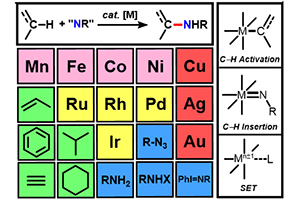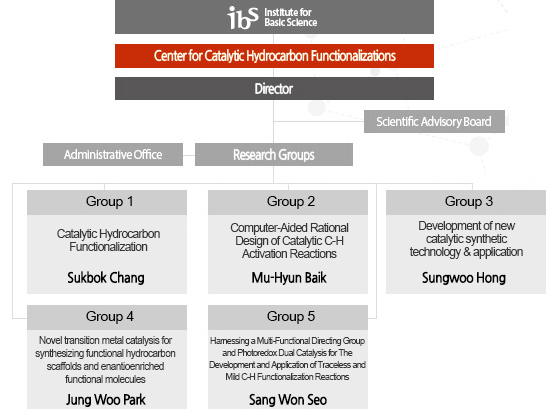주메뉴
- About IBS 연구원소개
-
Research Centers
연구단소개
- Research Outcomes
- Mathematics
- Physics
- Center for Theoretical Physics of the Universe(Particle Theory and Cosmology Group)
- Center for Theoretical Physics of the Universe(Cosmology, Gravity and Astroparticle Physics Group)
- Center for Exotic Nuclear Studies
- Center for Artificial Low Dimensional Electronic Systems
- Center for Underground Physics
- Center for Axion and Precision Physics Research
- Center for Theoretical Physics of Complex Systems
- Center for Quantum Nanoscience
- Center for Van der Waals Quantum Solids
- Chemistry
- Life Sciences
- Earth Science
- Interdisciplinary
- Institutes
- Korea Virus Research Institute
- News Center 뉴스 센터
- Career 인재초빙
- Living in Korea IBS School-UST
- IBS School 윤리경영


주메뉴
- About IBS
-
Research Centers
- Research Outcomes
- Mathematics
- Physics
- Center for Theoretical Physics of the Universe(Particle Theory and Cosmology Group)
- Center for Theoretical Physics of the Universe(Cosmology, Gravity and Astroparticle Physics Group)
- Center for Exotic Nuclear Studies
- Center for Artificial Low Dimensional Electronic Systems
- Center for Underground Physics
- Center for Axion and Precision Physics Research
- Center for Theoretical Physics of Complex Systems
- Center for Quantum Nanoscience
- Center for Van der Waals Quantum Solids
- Chemistry
- Life Sciences
- Earth Science
- Interdisciplinary
- Institutes
- Korea Virus Research Institute
- News Center
- Career
- Living in Korea
- IBS School
Research Centers
- Research Outcomes
- Mathematics
- Physics
- Center for Theoretical Physics of the Universe(Particle Theory and Cosmology Group)
- Center for Theoretical Physics of the Universe(Cosmology, Gravity and Astroparticle Physics Group)
- Center for Exotic Nuclear Studies
- Center for Artificial Low Dimensional Electronic Systems
- Center for Underground Physics
- Center for Axion and Precision Physics Research
- Center for Theoretical Physics of Complex Systems
- Center for Quantum Nanoscience
- Center for Van der Waals Quantum Solids
- Chemistry
- Life Sciences
- Earth Science
- Interdisciplinary
- Institutes
- Korea Virus Research Institute
DirectorCHANG Sukbok
Innovating the chemical industry with the studies of new catalytic reactions
Tel. +82-42-350-8123
Fax +82-42-350-8180
IBS Center for Catalytic Hydrocarbon Functionalizations
Room 3107, Dept. of Chemistry, Natural Science B/D(E6-4), KAIST,
291, Daehak-ro, Yuseong-gu, Daejeon
Major Publications
- Selective formation of γ-lactams via C–H amidation enabled by tailored iridium catalysts (Science, 2018)
- Asymmetric Formation of γ-Lactams via C−H Amidation Enabled by Chiral Hydrogen-Bond-Donor Catalysts (Nature Catalysis, 2019)
- Electro-inductive Effect: Electrodes as Functional Groups with Tunable Electronic Properties (Science, 2020)
- Energy-Transfer-Induced [3+2] Cycloadditions of N–N Pyridinium Ylides (Nature Chemistry, 2023)
- Mechanistic snapshots of rhodium-catalyzed acylnitrene transfer reactions (Science, 2023)

Director

Director CHANG Sukbok
Professor Chang is the director of the Centre for Catalytic Hydrocarbon Functionalizations, established in December 2012. Director Chang received his M.S. from Korea Advanced Institute of Science and Technology (KAIST) in 1987 and his Ph.D. from Harvard University in 1996. He has been a professor of KAIST since 2002 and received numerous awards including Korean Science Prize in Chemistry and Kyung-Ahm Academic Award.
Introduction

Developing new catalytic organic reactions and investigating their applications
- - Designing catalysts based on experimental chemistry and computer simulations
- - Developing new activation methods for C-H bonds
- - Fabricating chemical feedstocks through selective defunctionalization of biomass
Main research activities
The main research areas of the Center for Catalytic Hydrocarbon Functionalizations are the development of new catalytic reactions and elucidation of mechanistic details in the C-H bond activation of low-reacting molecules such as hydrocarbons. Transition metal catalysis is the central tool in this study to develop and apply.
Hydrocarbons are present abundantly in nature, but cannot be easily exploited as source materials for organic synthesis or chemical processes owing to their low reactivity under mild conditions. To overcome this problem, it is essential to develop an effective and selective catalytic system which will provide the necessary sound basis for chemical reactions, and ultimately offer a wide range of applications, including the synthesis of natural products and useful materials, and bioactive compounds.
By first identifying the basic principles underlying the carbon-hydrogen bond-activation process in low-reactivity organic molecules, the center aims to develop a system that enables mediation via metal catalysts for practical application of reactions in organic chemistry. Our ultimate goal is to develop innovative science and technology (S&T) solutions that go beyond the boundaries established by the chemical-materials industry. We also would like our goal to be the application of developed catalytic systems for the introduction of useful functional groups in methane-based hydrocarbons. In addition, the center plans to conduct research into biomass conversion by developing selective defunctionalization catalytic systems.
Organization

Main research results
- Asymmetric Formation of γ-Lactams via C-H Amidation Enabled by Chiral Hydrogen-Bond-Donor Catalysts
(Nature Catalysis, 2019) - Selective formation of γ-lactams via C–H amidation enabled by tailored iridium catalysts
(Science, 2018) - Iridium-catalysed arylation of C–H bonds enabled by oxidatively induced reductive elimination
(Nature Chemistry, 2018) - Metal-Free, Visible-Light-Induced Remote C(sp3)–H Pyridylation via Radical Translocation of N-Alkoxypyridinium Salts
(Angew. Chem. Int. Ed., 2018) - A new and selective cycle for dehydrogenation of linear and cyclic alkanes under mild conditions using a base metal
(Nature Chemistry, 2017) - Catalytic Borylation of Methane
(Science, 2016)
Personnel
| Total | 100 |
|---|---|
| Gender | 76(Male), 24(Female) |
| Korean/ International | 90(Korean), 10(International) |
Degree
Position
As of October. 2019
- Content Manager
- Center for Catalytic Hydrocarbon Functionalizations : Seo Ju Eun 042-350-8124
- Last Update 2023-07-19 14:21











